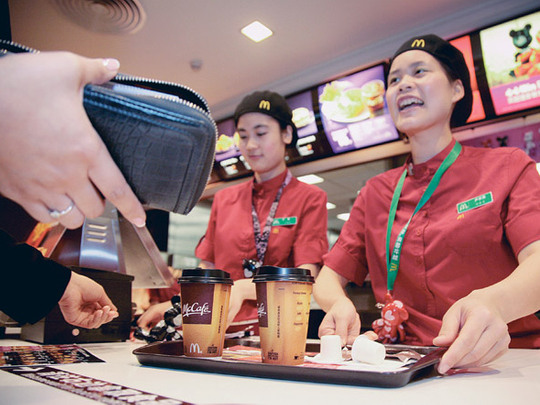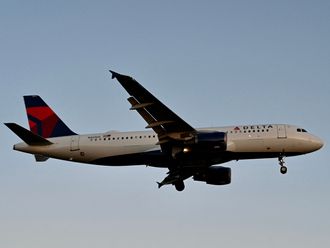
Shanghai: McDonald's yesterday inaugurated its first Hamburger University in China to train new generations of managers as foreign companies step up efforts to develop and keep Chinese talent.
China is McDonald's fastest-growing global market, said Tim Fenton, the company's president for Asia, Pacific, Middle East and Africa. He said the country's $300 billion (Dh1.1 trillion) a-year "informal eating out" market is expanding at an annual rate of 10 per cent, compared with 2 to 3 per cent in the United States.
"It's because of China's strategic importance to McDonald's that we have chosen to have our new Hamburger University in Shanghai," said Fenton. "We have to get ahead of the people curve."
The move comes as foreign companies in China are focusing on developing local managers but face pressure to keep them as young, ambitious employees move on for better opportunities.
Survey findings
Also yesterday, the American Chamber of Commerce said a survey of 202 multinational companies found they are changing strategies to adapt to rising costs and high employee turnover.
Companies need to offer better opportunities to keep talented employees, said Joni Bessler, a partner at consulting firm Booz & Co, which helped to compile the survey. "Innovation is required to get people to stay for more than two years."
Shanghai's $250 million Hamburger U., the company's seventh worldwide, has a statue of company symbol Ronald McDonald but will not teach how to make hamburgers and fries. The emphasis is on running businesses better.
McDonald's, based in Oak Brook, Illinois, has more than 60,000 employees in more than 1,100 restaurants in mainland China after 20 years in the country and plans to expand to 2,000 outlets in three to five years.
Since company policy requires that branches be headed by Hamburger U.-trained managers, it shifted its Hong Kong teaching facility to Shanghai. The school already was training mostly mainland Chinese.
The school aims to have 5,000 graduates over the next five years.












